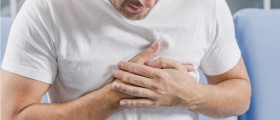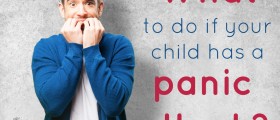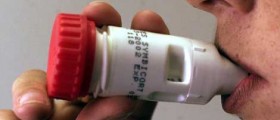
Panic attacks, also known as anxiety attacks, are common in many people. They may be one-time occurrence but often they are repeated. They may occur as manifestations of some other condition such as panic disorder, social phobia or depression but most often they are connected with emotional problems, stress and trauma, as well as the remembering of a stressful event from the past.Symptoms
The most ordinary symptoms include: accelerated heart rate, sweating, shaking, muscular tension, short breath, feeling of choking, chest pain, unsettled stomach, wooziness, weakness in the knees, confusion, and feeling the need to get away. Patients are often afraid they might die or suffer a heart attack. A regular attack may last from a couple of seconds to as long as a couple of hours. Symptoms develop gradually and they disappear in the same manner.Treatment
Panic attacks are treatable conditions. Medications are not always required to reduce or completely stop panic attacks. Self-help strategies or herbal remedies can show significant results. Moreover, medications can sometimes conceal the very root of the problem, instead of solving it. They often address the effects rather than the original cause of the disorder. Medical drugs can also develop addiction in some patients and thus deepen the problem.Exercise
Maintaining a healthy lifestyle is crucial to prevent panic disorders. Staying physically fit with a proper diet, regular exercise and healthy habits will reduce anxiety and stress levels.Food and beverages
Caffeine and panic attacks are correlated because caffeine accelerates anxiety and may cause sleeping problems. People prone to panic attacks should avoid caffeine, sodas, caffeined herbal teas, energy drinks and alcoholic beverages. Consumption of these can cause abnormal heartbeats and trigger a panic attack. It is possible that certain kinds of food provoke panic attacks in individuals. Patients should keep records of what their daily diet consists of, so they can point out and eliminate possible undesirable foods while making other healthy choices. Vegetarian diets can help in handling anxiety. Red meat, for instance, releases stress hormones in the body, so it should be avoided.
Smoking
The common prejudice about tobacco is that smoking helps people relax. However, studies have shown there is no connection between smoking and reducing panic attacks. Tobacco will only worsen a patient's general physical condition.
Sleep
Proper sleep is vital for every human being. The average adult person functions best with eight hours of sleep. The exhaustion affects a person's ability to function properly on every level.Natural remedies
There are plenty of natural methods used in the treatment of panic attacks. Aroma therapy or chamomile tea should be practiced before bed time. Vitamin B, magnesium and calcium are important for calming down the nervous system and preventing repeating attacks.







,-Asthma-And-Anxiety_f_280x120.jpg)









Your thoughts on this
Loading...